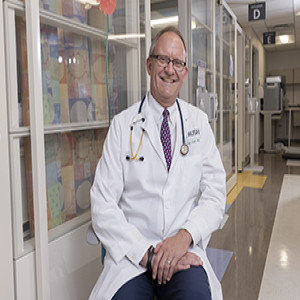
Rounding at Rush spotlights the work of physicians across the Rush University System for Health, comprised of two community hospitals and Rush University Medical Center, which is ranked by U.S. News & World Report as one of the nation’s best hospitals. As a leading health system, Rush delivers outstanding patient care, offers the latest treatments, educates the next generation of health care providers, and pursues groundbreaking research. Accreditation Statement In support of improving patient care, Rush University Medical Center is jointly accredited by the Accreditation Council for Continuing Medical Education (ACCME), the Accreditation Council for Pharmacy Education (ACPE), and the American Nurses Credentialing Center (ANCC), to provide continuing education for the health care team. This activity is being presented without bias and with/without commercial support. Designation Statement Rush University Medical Center designates this internet enduring material activity for a maximum of One (1) AMA PRA Category 1 Credit(s)™. Physicians should claim only credit commensurate with the extent of their participation in the activity. Disclosures The course director(s), planner(s), faculty and reviewer(s) of this activity have no relevant financial relationships to disclose.
Episodes

Monday Oct 04, 2021
Monday Oct 04, 2021
Five years ago, RUSH University Medical Center was treating very few patients with fibrolamellar carcinoma. Today, RUSH treats the largest number of patients in the country with this rare type of liver cancer, which typically affects adolescents and young adults. During that span, RUSH has developed innovative, cutting edge treatments and is considered a national leader in the treatment of this disease.
Paul Kent, MD, a pediatric hematologist-oncologist and the medical director of the fibrolamellar carcinoma program at RUSH, profiles the forward thinking treatments RUSH developed. Patients who were previously unable to have their liver tumors surgically removed became surgical candidates at RUSH. And some patients who were once on hospice care were given second chances through the groundbreaking work of Dr. Kent and his colleagues.
“When you have a very rare, terrible disease that we know most people can’t survive without some dramatic [intervention], then that’s your opportunity to try something new. As long as what you’re trying has scientific rationale, is logical and, equally important, that you follow very closely for any side effects, then you publish those results, good or bad, so the world can learn from it.”
CME credit link: https://cmetracker.net/RUSH/Publisher?page=pubOpen#/EventID/483689

No comments yet. Be the first to say something!